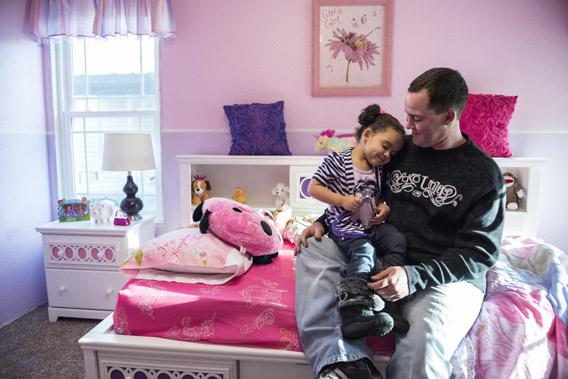The South Carolina Supreme Court on Wednesday brought apparent closure to the lengthy saga best known to Slate readers, RadioLab listeners, and SCOTUS watchers as Adoptive Couple vs. Baby Girl. The state court, faced with the unenviable task of deciding one of the more complicated custody battles you’re likely to hear, ruled that the aforementioned baby girl—now a small child—is to be returned to the white couple who had taken custody of her as a newborn in 2009 only to have the state court send her to live with her biological, Native American father roughly two years later.
The state supreme court’s original decision to give custody of the girl, Veronica, to her biological father, Dusten Brown, was based on the Indian Child Welfare Act, which was—before this case anyway—a relatively little known federal law that had been written in the 1970s to curb some rather uncomfortable (to put it mildly) practices that caused many Native American children to be separated from their families.
In theory, the law allowed a non-custodial Indian parent to block an adoption by non-Indians, something Brown first sought to do about four months after Veronica had begun living with Melanie and Matt Capobianco in South Carolina with the blessing of her biological mother. Late last month, however, the U.S. Supreme Court ruled that ICWA didn’t apply in this case because Brown never actually had custody of Veronica for any amount of time before he filed his appeal, something a slim majority of the justices said was needed under the federal law. (Like I said, this was a doozy of a case.) The high court’s ruling was a victory for the Capobiancos, but it didn’t tackle the custody issue itself—instead leaving that difficult decision to the South Carolina court.
For most of us who watched even a fraction of this story unfold, there was no easy answer. As my colleague Emily Bazelon explained last month, it is impossible to write about this case without calling it heartbreaking. There was no plausible outcome that wouldn’t end with at least one parent, biological or adoptive, losing their little girl for good.
There were clear battle lines drawn on who had the stronger claim to parental rights, but the complicated case grew that much more so when the debate turned to the more basic issue of what would be in Veronica’s best interest now—after she spent the first two years of her life with the Capobiancos and the last 18 months with Brown.
But a close reading of the opinion signed by a majority of the South Carolina justices suggests that wasn’t exactly the issue they were focused on. Or more specifically, I suppose, the majority came at the question from a different angle, deciding that what was most important was to arrive at a swift and final decision to spare “further delay and heartache for all involved—especially Baby Girl.” And so the court ruled against sending the case back to family court to decide the best-interests issue in a more traditional setting as the two justices in the minority had thought best.
In issuing its final ruling, the majority effectively turned back the clock to make a decision based on what it would have done if ICWA had never come into the picture in the first place. That, in turn, created what amounted to an alternative present in which the same court had never sent Veronica to live with Brown in Oklahoma 18 months ago. “With the removal of the perceived federal impediment to Adoptive Couple’s adoption of Baby Girl, we turn to our state law,” the majority wrote in rather cold legalese, referring to a law that denies Brown parental rights because he hadn’t lived with Veronica or her biological mother—or paid child support—before she was originally turned over to the Capobiancos.
The case will now be sent to a lower court for a final stamp of approval and, barring an unforeseen twist, Veronica will be returned to the Capobiancos, a moment that will mark the second time in her young life that she will be taken from someone who considers themselves to be her parent and given to someone else who thinks the same thing.
***Follow @JoshVoorhees and the rest of the @Slatest team on Twitter.***
